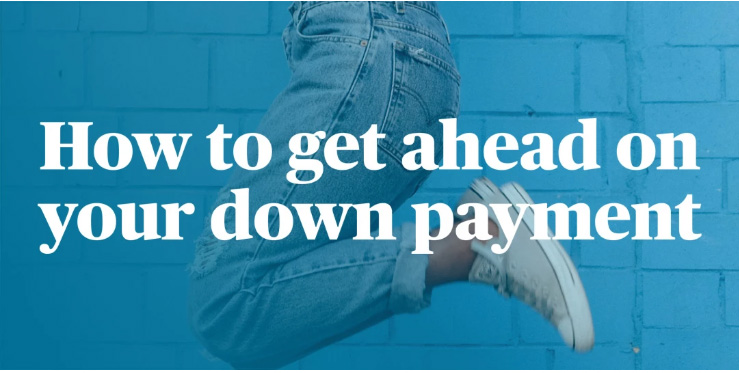HOW TO GET AHEAD ON YOUR DOWN PAYMENT
With the number of first home buyers in the mortgage market lingering near record lows and property prices hitting new highs, it’s clear that first home buyers need a smart savings strategy to build their deposit.
But getting ahead isn’t easy. Life goes on and bills need to be paid. Rising costs for essentials like electricity and private health cover make saving even harder.
So, how can you squirrel away enough to stake your claim in the property market? There’s no magic wand, but there are some steps that can help you turn your first home dream into a reality sooner.
Have a History of Saving
As mundane as it sounds, the only way to save is to spend less than you earn. Lenders expect you to master this habit before approving a mortgage.
Most lenders require borrowers to show a history of “genuine savings” before approving a loan. While policies vary, they usually want evidence that you’ve been steadily saving for a period, especially if your deposit is less than 20%.
Cash gifts from family usually don’t count because they don’t prove you can manage your budget to make mortgage payments.
Simply put: the only way to show you can save is to save regularly.
Keep Your Credit in Check
Your credit history, or credit score, tells lenders if you can handle a home loan. Make sure you pay your bills on time. Missing even a $100 monthly credit card payment doesn’t look good when you’re asking to borrow thousands monthly.
Your credit score reflects your borrowing and repayment history, plus how often you apply for credit.
A low credit score could hurt your loan approval chances. You can access your credit report for free once a year from an approved credit reporting body (CRB) or under specific conditions like being refused credit recently.
For more information, visit the Office of the Australian Information Commissioner.
Save for a 20% Deposit
A 20% deposit is a big ask for first-time buyers, especially in cities like Sydney or Melbourne. Property prices climbing make saving this much tougher.
If you don’t save 20%, you’ll likely have to pay Lenders Mortgage Insurance (LMI), which can cost thousands. LMI protects the lender if you default, but not you, the borrower.
LMI costs depend on your loan size and how much of the property value your loan covers. The bigger your deposit, the lower your LMI cost.
Talk to your broker about LMI costs if your deposit falls short. Sometimes, paying LMI makes sense if property prices keep rising and you’d otherwise lose ground by waiting.
Also, some lenders accept a family member as a guarantor, using the equity in their home to help secure your loan and possibly avoid or reduce LMI.
Ditch Bad Debt
Pay down your debts quickly if you want to get ahead faster. Paying only the minimum on credit cards increases how much you owe and how long you’ll owe it, making saving harder.
For example, a $6,000 balance on a credit card with 20% interest, paid at $100 per month, would take over 75 years to clear and cost more than $30,000 in interest.
But if you increase payments to $310 per month, you could clear it in two years, paying just $1,308 in interest. Once you’re debt-free, you’ll have more to put toward your home deposit.
Low or no-interest credit cards and balance transfers can help reduce debt faster, but watch for transfer fees.
You can also ask your provider to lower your credit card limit. Lenders check your credit limits during loan applications, and a lower limit can reduce the temptation to overspend.
Find the Right Loan
Once you have your deposit, it’s time to secure a loan. A low interest rate is important but not the only factor.
Talk to your mortgage broker about a loan that suits your current needs and future plans. For instance, if you want to start a family soon, you might want a loan flexible enough to switch between variable and fixed rates or change repayment types.
Your broker can access many loan products and save you the hassle of shopping around. The more you share about your finances and goals, the better they can find a loan that fits you.


